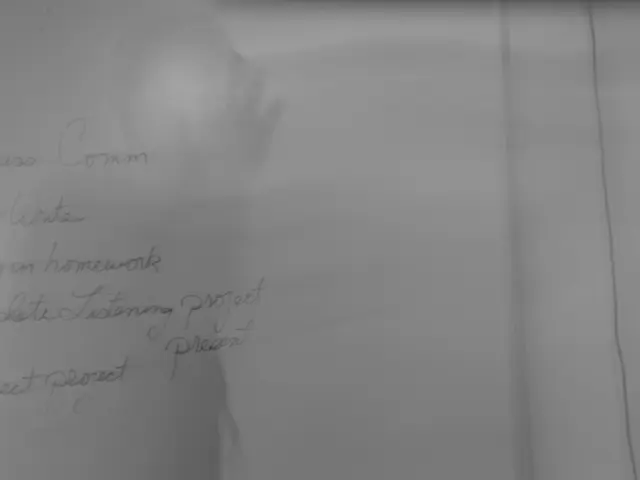6 Handbooks Guiding the Development of Children with Emotional Stability
Revised Parenting Guide
Looking for insights to boost your parenting game? Look no further! This guide presents six must-read books that offer practical advice and valuable perspectives on nurturing your child's development while maintaining your emotional well-being. Each book offers unique strategies, ranging from better communication to fostering resilience and practicing mindfulness. Here's a breakdown of each book's key takeaways and actionable steps for parents.
- How to Talk So Kids Will Listen & Listen So Kids Will Talk by Adele Faber and Elaine Mazlish
First published in 1980, this classic book provides practical communication strategies that promote cooperation, mutual respect, and emotional connections between parents and children. At the heart of this book is the idea that children are more willing to listen when they feel heard and understood. By acknowledging feelings before addressing behavior, parents can build positive relationships and foster an environment where children feel safe and respected, leading to reduced resistance and increased collaboration.
### Actionable Steps for Parents: 1. Acknowledge Feelings First: React to your child's emotions with understanding, e.g., "I see you're upset because..." This establishes empathy and helps your child feel understood. 2. Use Descriptive Praise: Rather than saying "Good job," be specific about what your child did well, like "You really worked hard, and I noticed your effort." 3. Involve Children in Problem-Solving: Encourage your child to contribute to finding solutions. This helps build their confidence and encourages a sense of responsibility.
- How to Stop Losing Your Sh*t with Your Kids by Carla Naumburg
This book offers a humorous yet practical guide on managing anger and frustration in interactions with children. Naumburg emphasizes mindfulness, self-care, and setting realistic expectations for both parents and children. By practicing mindful parenting, parents can become more present, aware, and respond to their children with calmness and patience instead of reacting impulsively.
### Actionable Steps for Parents: 1. Identify Your Triggers: Understand the situations that most often cause you to lose your temper (e.g., tiredness, resistance, or overwhelm). Being aware helps prepare you to respond more calmly. 2. Practice Breathing Techniques: When feeling stressed, take a few deep breaths before reacting. Deep breathing activates your relaxation response and encourages more measured and mindful reactions. 3. Prioritize Self-Care: Make time for activities that recharge you (e.g., exercise, hobbies, or social support).
- The Courage to Be Disliked by Ichiro Kishimi and Fumitake Koga
While not strictly a parenting book, this exploration of Adlerian psychology offers valuable insights for parents on personal responsibility, freedom, and self-acceptance. It's highly relevant when encouraging children to embrace resilience, accountability, and self-worth.
### Actionable Steps for Parents: 1. Teach Personal Responsibility: Encourage your children to take control of their actions and choices by helping them understand the consequences of their actions. 2. Model Living in the Present: Practice mindfulness together and teach your child the value of living in the present moment. 3. Foster Confidence Without External Validation: Praise your child's efforts and hard work, emphasizing that their self-worth isn't determined by others' opinions.
- Emotional Blackmail by Susan Forward
Forward's book delves into the complex dynamics of manipulation in relationships, including the relationships between parents and children. Parents can learn to recognize manipulative tactics and build relationships based on mutual respect and open communication.
### Actionable Steps for Parents: 1. Set Clear Boundaries: Establish and uphold boundaries with your children. Explain your expectations calmly and follow through with consistent consequences. 2. Encourage Honest Communication: Create a safe space for your child to express their emotions, without fear of judgment or punishment. 3. Avoid Manipulative Language: Refrain from using guilt or obligation to control your child's behavior. Communicate clearly and directly about your expectations.
- Conscious Uncoupling by Katherine Woodward Thomas
This book offers a five-step process for ending relationships in a healthy, compassionate way. It's particularly useful for parents going through separation or divorce who want to minimize the emotional impact on their children while fostering a peaceful, cooperative co-parenting relationship.
### Actionable Steps for Parents: 1. Prioritize Open Communication with Your Ex-Partner: Maintain respectful communication with your co-parent to ensure your children's well-being. 2. Focus on Emotional Healing for Yourself and Your Children: Allow space for self and child expression and reassure them that their feelings are valid. 3. Model Resilience and Personal Growth: Show your children that it's possible to emerge stronger after difficult experiences.
- The Joy of Hate by Greg Gutfeld
Gutfeld's book offers a perspective on parenting rooted in broader cultural norms. He critiques liberal tolerance, emphasizing the importance of free speech, individuality, and resisting the pressure to conform. Parents can encourage children to think critically and develop their unique identities.
### Actionable Steps for Parents: 1. Encourage Independent Thinking: Challenge your children to question societal norms and think critically about the world around them. 2. Support Your Child's Unique Identity: Celebrate your child's individuality and resist the urge to pressure them into conventional molds. 3. Teach Resilience in the Face of Criticism: Help your child understand that standing by their beliefs may invite criticism or disagreement. Teach them to handle differing opinions graciously.
- To foster a global-minded child, consider incorporating books about different cultures, such as 'Cultura: A Journey Through the Land of Latin Cultures' or 'Culture Shock! Japan', into your family's reading routine.
- For lifelong learners, 'How We Learn: The Surprising Truth About When, Where, and Why It Happens' by Benedict Carey offers insights into optimizing learning and self-development in a rapidly changing world.
- To promote emotional well-being, consider practices such as meditation and mindfulness, as detailed in books like 'Mindfulness for Beginners' by Jon Kabat-Zinn. These techniques can help manage stress and enhance focus.
- To cultivate a healthy family dynamic and deepen relationships, try engaging in discussions about contemporary issues, such as those presented in Laura Sessions Stepp's 'Unhooked: How Young Women Pursue Sex, Delay Love, and Lose at Both'. By fostering open communication, families can navigate complex topics, strengthen relationships, and support one another in personal growth.
- In addition to personal growth, investing in education and self-development is crucial. Books like 'Grit: The Power of Passion and Perseverance' by Angela Duckworth and 'Mindset: The New Psychology of Success' by Carol S. Dweck offer insights into cultivating resilience, embracing challenges, and fostering growth mindsets.








